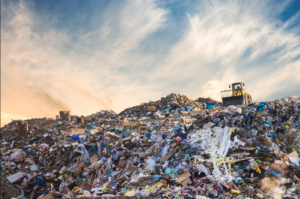Quick Top 10 Tips for Waste Managers
How to get the rest of the Council to help you to achieve your success
By Darren North
1. Clearly understand, interpret, and convey your council policies, strategies, and objectives and how they may relate to waste activities both for the community and internally – this is really important and will come in handy when you are questioned about budgets, spending, resourcing, investment, and so on. It will also assist when advising why waste should be a key part of any council activity.
2. Know your own waste generation and performance within Council – and report it back. Bet it won’t be pretty! But it should help change mindsets and attract the attention it deserves.
3. Fully understand your community – not just the once a year council-wide survey, really get to know what the real thoughts are on waste issues – find out the community Wishlist for resources and waste. Don’t be afraid of the answers or questions they raise – it’s healthy to be open about waste and it’s impacts. Be fully honest, frank, and open in the discussions
4. Education isn’t just for the community – use your educational resources internally; after all, most of the council employees are service users anyway. Change the education style/focus from advising people on what to do, to one of how they can take part and where. You never know, someone may be able to tell you how to, or where to, do it better.
5. Have a ‘waste in your face’ mindset; make it all about waste at every opportunity and keep it at the top of any agenda – always ask at project or planning meetings what they are doing or considering doing with the waste from the project. Where are the street bins going and what do they look like in that new road and pathway upgrade?
6. Get the street bins brightened up and make them stand out. Bins should be like a good waiter; they are never intrusive but always there and easy to find and use when needed. Street bins should be the same, they need to be clearly visible but not intrusive; they should stand out, but blend into their environment. Make them attractive and stylish enough to get the planners, designers, and construction teams to want, need, and see them as an invaluable asset to their projects.
7. Set up an internal waste group chat page on the internal intranet where you can post topical images and news about waste and its environmental impacts. This is good for others to also post the actions they are taking to reduce waste, either in their section or at home, and their successes in doing so. Maybe use an internal rewards program funded by the EPA to reward the best poster, recycler, or champion each month.
8. Challenge the traditional. Waste isn’t a problem that needs to be hidden anymore. People are actively seeking out alternative solutions outside of Council services. Get your Community Liaison or Communications Team onboard with the good news stories around waste in the community. After all, it is your education and sustainability programs which encourage the use of these other services. Why shouldn’t you make the most of the good news to help raise the Waste Team’s profile.
9. Use your trucks. The waste truck is one of the largest billboards in the community and they drive down every street every week. Keep them bright, clean, tidy, colourful and well-presented. Use the side for running waste promotions and service performances – keep the messages relevant and change them often to keep interest. You might even share the side of the truck with your Communications Team to promote local events, as this will save the council advertising costs and keep waste in good community standing.
10. Data, data, and more data. Capture detailed information about all waste types, sources, generators, preventors, service providers, reusers, disposers, and anyone or anything else that contributes to the management of waste and resources within your community. Build a giant web of interconnected channels and pathways that waste travels, draw it on the wall of your education centre and watch it grow. You’ll be surprised by the who, when, how, and why of waste activities within your community which are already actually helping you to achieve a better future.
About Darren
 Darren North
Darren North
Darren brings over 20 years’ waste management and resource recovery experience in both the public and private sectors within Australia and the UK. He has extensive experience spanning both traditional and contemporary processing, disposal, recycling and recovery practises including many areas of sustainability, environment, behaviour change, and both single and multi-facility operations and management.



